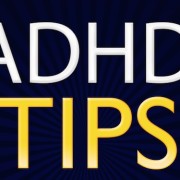Siblings of Children with ADHD
The entire family is affected by a child’s ADHD symptoms. Research regarding the siblings of children with ADHD reveals that they are negatively affected by the other child’s behavior. Here are some commonly reported feelings experienced by siblings of children with ADHD:
- Feeling less important or forgotten about due to the family focus on the ADHD child.
- Experiencing sorrow because their family is not “normal.”
- Feeling victimized by their ADHD sibling due to acts of physical and verbal aggression and, therefore, constantly having to keep vigilant.
- Frustration due to living in an environment with conflict and noise. Siblings often desire a more quiet and peaceful place.
Feeling as though parents minimize their ADHD sibling’s violence and aggression. Oftentimes, violence is not taken seriously, leaving siblings with a sense of unsafety. - Resentful feelings due to ADHD controlling the family’s vacation, parties, holidays, etc.
- Feeling as though it is their duty to take care of the sibling. For some children, this caretaking role is viewed positively, but for others it is a difficult burden.
- Feeling as thought their identity is defined as being the sibling of an ADHD child.
- Wanting their parents to understand what it is like to have a sibling with ADHD.
It is important to remember that one person with ADHD affects the whole family. If necessary, family intervention should take place in order to better maintain a healthy family life despite the struggles with ADHD. Siblings’ concerns regarding the ADHD child’s aggression should be taken seriously as safety is a priority and proper treatment for aggression should be utilized. Siblings should be involved in the treatment of the ADHD and should be rewarded for their help with the care of the ADHD child. Perhaps, most importantly, parents need to spend alone time with the non-ADHD children in order to keep a healthy relationship and give the child as much individual attention as possible.
Contact Dr. Gordon for help with your ADHD. We have treatment and solutions available online, by phone, and in our offices.
written by: Brianna Malinowski, Jay Gordon, Ph.D
Kendall, J. (1999). Sibling accounts of attention deficit hyperactivity disorder (ADHD). Family Process, 38(1), 117-136. doi:10.1111/j.1545-5300.1999.00117.x


